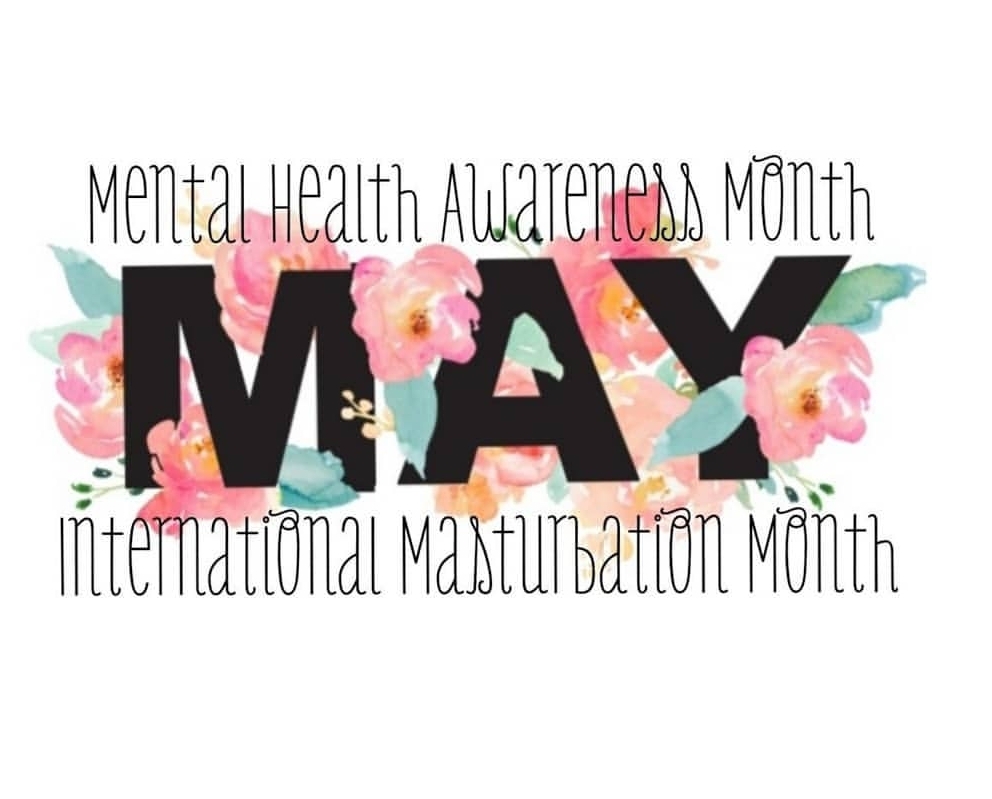What is Self-love?
What is self love? It really means something different for each person, because we all have many different ways to show that we love ourselves. The real question is, what does self love look like to me?

What is self love? It really means something different for each person, because we all have many different ways to show that we love ourselves. The real question is, what does self love look like to me?

If you are unsure what defines consent here is an outline from the Sexual Assault Prevention and Awareness Centre: "Consent is when someone agrees, gives permission, or says "yes" to sexual activity with other persons. Consent is always freely given and all people in a sexual situation must feel that they are able to say "yes" or "no" or stop the sexual activity at any point." 1.When you’re engaging in sexual activity, consent is about communication. And it should happen EVERY time.
2. consent for one activity, one time, does not mean giving consent for increased or recurring sexual contact.
3. Sexual assault can happen in marriages not just one night stands.
4. Finally remember you can withdraw consent if you no longer feel comfortable.
Remember sex without consent isn't sex.

"If you love someone and you break up.."
When a relationship ends, it can be immensely heartbreaking. Negative emotions are often demonised and we are made to feel as though feeling sad, angry and hurt is not good for us. That's not the case. You are perfectly entitled to experience and go through these emotions. Talk to people:friends, family members, your therapist.
Whatever happened, remember you are loved, you are important, you are beautiful, keep that heart on your sleeve.

If we use relationships to make us wiser, kinder and more compassionate, we can actually change how they function. We can have the relationships and lives we've always dreamed of. Look after each others soul and personal growth. Committing to helping, supporting and loving each other. It is only when you are living through love and kindness with each other that your relationship will truly flourish.
Supportive actions often spell the difference between success and failure. One way to be an encouragement to your spouse is to be a supportive partner.
By being supportive, your actions and attitude will show that you believe in your partner and want the best for them
Support and motivation will allow you to grow individually but also flourish as a partnership. Why do we choose to commit to spending the rest of our life with partners? Not because it’s easy. One of the MANY reasons is that we have someone that supports us through our life journey. Someone who will always be there for us, to believe in us, appreciate, and support us in both the good and bad. Working on supporting each other will build on your foundation as a couple.


Intimacy is at the heart of a strong relationship. Intimacy is about being able to be free, to be your authentic self with them. It's a deep emotional bond that is normally reserved for just one person. Ideally, sex in a loving relationship should come from a place of love and connection. The two are interconnected intimacy builds sex and sex builds intimacy. When one is struggling, the other is also.
If you and your partner are having difficulties couple therapy can really assist.

Know the difference between toxic relationships and healthy ones. They are about empowering and supporting one another. It's about team work and collaboration.

An anxiety disorder is a condition characterised by high levels of fear or worry that get in the way of your average day.
Common anxiety disorders include problems , difficulties in social situations, excessive worry that is difficult to control, stress over issues such as relationship problems and fears of specific events or objects (phobias).
Common symptoms range from tummy aches or headaches, irritability or easily upset, feelings of panic, sleeping problems, frequent reassurance seeking, muscle tension and concentration problems. If you are suffering with anxiety the first step is to talk about it. Sharing with a partner, friend or family member can ease the burden and possibly gain some insight and perspective. Therapy can greatly assist, especially Cognitive Behavioural Therapy.

Loss of desire, also known as low libido. Can affect women at certain times of life.
There are many obvious times such as during pregnancy, after having a baby, during menopause. However some women experience most of the time.
Low libido can have a range of physical or psychological causes, including:
*Stress
*Depression
*Excessive drug use or alcohol.
*Medication side effects
*Hormone issues (drop in testosterone)
*Relationship issues
And many more reasons. If you are struggling with low libido it is worth visiting your GP in the first instance. They can assess for any physiological aspects. If ruled out sex therapy can help assist you in reconnecting with your sexuality and help with any relational issues.

New research finds that comfort with sexual communication is directly linked to sexual satisfaction. Alongside this: People who are more comfortable talking about sex are also more likely to do so while having sex, the researchers found. Expressing yourself sexually tends to be easier during sexual activity as guards and barriers tend to be lowered. After all, people who are uncomfortable asking their partners to wear a condom may be at higher risk of having unprotected sex and exposing themselves to sexually transmitted infections. Which would reduce the fear of pregnancy or STI's and increase an individual feeling relaxed....not to mention the all important intimacy! So try to communicate and express yourself honestly. This will lead to a happier sex life 💗.

Sexual dysfunction is any physical or psychological problem that prevents you or your partner from getting sexual satisfaction. Male sexual dysfunction is a common health problem affecting men of all ages, but is more common with increasing age. It's estimated 1 in 10 men has a problem related to having sex, such as Rapid (premature) Ejaculation or erectile dysfunction.
There are many treatment methods including medical, surgical and therapeutic. However it should be understood that this is about treating the individual and what is right for them. If you are concerned attend your GP clinic in the first instance. They should be able to guide you in the right direction.

Masturbation is a great form of #selfcare that is fun, healthy and cheap!
In keeping with the theme of mental health it is also important to point out that masturbation can cause issues for some people. I often ask clients three questions which allow me to gain an understanding as to whether support is needed:
Can you cut down on your masturbation? Is it having a negative effect on your life and relationships? Do you feel shame/guilt following masturbating?
If none of these apply to you then happy masturbating! Otherwise there are many specialists out there that can support you.
Reading the piece in the @nytimes with Uma Thurman today I was really struck by one of the final paragraphs.

When you tell your child that they were harmed because another person likes them, you’re connecting pain with love. That not only normalizes being abused, but also abusing others.
This then perpetuates further into adult relationships and normalises cruelty and unkindness from partners. If love is patient, kind, understanding, and compassionate, then surely love is not cruel, mean and violent?

Sex and communication: If you feeling awkward or exposed talking during sex, a good way to commence communicating is to try it before being in the act. You could start the conversation about something you've my have had a dream about, day dreaming about or a fantasy you've been thinking about trying. You could start by leaving a note or even a text. Putting yourself gently out there is a good way to start. It's dipping your toes rather than diving straight in!
This was one of the first things I learnt about therapy, from my own personal therapist.

When something feels uncomfortable to explore, you should focus on it. Talking about painful material in therapy is beneficial because this brings the material into the present where it can be looked at and understood. This is the time to feel uncomfortable so that your therapist can perform the psychological surgery that needs to happen for you to feel better later. Draining an infection is never pleasant, but it is necessary.
Avoiding a negative emotion buys you short term gain at the price of long term pain.

Today is Trans Day of Visibility. I love this simple image which reminds us that not everyone can be open about their gender for various reasons. One in five transgender people have been homeless due to their gender expression, 80% of transgender children feel unsafe in school, 59% have received verbal abuse and 41% have attempted suicide. More support is needed and cisgender people need to support and celebrate trans individuals.
Why not learn how to be a Trans Ally. Learn how you can do this in a few easy steps go to: www.glaad.org/transgender/allies.
If you are a trans trans, questioning, and otherwise gender-expansive person, know that you bring so much love + light to our world. You are needed you are valued and you are important.

Sex and communication: If your partner struggles with communicating with you during sex, some positive reinforcement might help. Telling your partner how amazing they are, good they look and how much you enjoy being with them. Comment on certain aspects that you do get genuine pleasure from. This also can be said after sex when your partner may even be caught off guard. Knowing that you think of them can really help boost confidence levels.

Listening is a skill. As a therapist you are taught to do it. Listening well means not just understanding the words or the information being communicated, but also understanding the emotions the speaker is trying to communicate.
Truely listening means trying to understand what the individual is trying to say in many forms, not just the content but what they say but how they say it; their tone, rate of speech and body language. Not to mention why they chose the specific words. Then the next level is how is this making them feel. Can you understand their emotional components?
Then finally what does this evoke for you? This maybe something that the individual is experiencing (if it is not and belongs to you, that's a whole new ball game!). Remember listening is a skill. So you can learn it!

The losses of two well know figures; Anthony Bourdain & Kate Spade this week is a stark reminder that mental illness does not discriminate. There is a preconceived notion that it only strikes on those suffering. It doesn't. Nobody is safe. Maybe today you can start a conversation on mental health, check in on someone, or seek help you have always needed.
We must continue to de-stigmatize mental illness. It’s OK to seek help. In fact it’s incredibly wise and brave. I urge you today to pay attention to what people are telling you, not just with their words. Use this time to be empathetic, sensitive and compassionate. Check on your “strong” friends. If you are struggling with how to talk to people, I have done a piece below on how to listen. That is the starting point. Listening, REALLY listening. Mental illness kills, just like physical illnesses and needs to be treated with the same seriousness.
Look after one another. Love. Be kind. Be gentle.
To you struggling, I see you. I hear you. Please reach out. You’re winning the battle with every breath and moment you choose life. There is support and help out there.
You are not alone.

I am constantly asked what Vaginismus is. It is a condition involving a muscle spasm in the pelvic floor muscles. It can make it painful, difficult, or impossible to have sexual intercourse, to undergo a gynecological exam, and to insert a tampon. Here are some basic facts surrounding Vaginismus:
There are different forms of vaginismus and symptoms vary between individuals.
Pain can range from mild to severe, and it can cause different sensations.
Vaginismus can result from emotional factors, medical factors, or both.
Treatment, which involves physical and emotional exercises, is usually effective